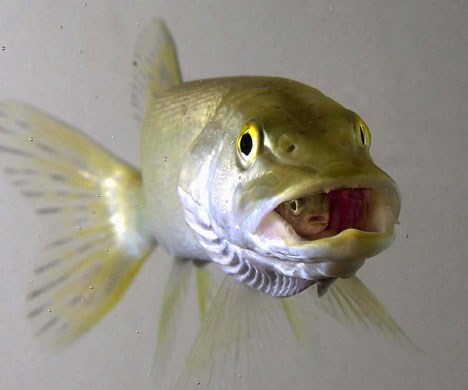Talk details how fish know when something smells fishy

Dr. Reehan Mirza, associate professor in the Biology department, will be presenting his research in a talk titled, Smelling is Believing: How Fishes use Olfaction to Stay Alive, on Friday, January 24, at 2 p.m. in room A257.
The talk is part of the Department of Psychology’s Speaker Series. It is free of charge and all are welcome.
Here’s a bit more on the subject from Dr. Mirza himself:
As humans we tend to rely more on vision than any other sensory modality. We often forget the importance of our sense of smell because we use olfaction on a subconscious level for important biological and ecological processes. Olfaction is a major sensory modality for aquatic organism due to the advantages that water gives to persistence of odours. Fishes use olfaction for finding mates, finding food, migration, habitat selection and avoiding predators. Many common prey fishes release chemicals from the skin when it is broken open by a predator during an attack. Other fishes in the vicinity can use these ‘alarm cues ’ as a means to assess the level of risk and to avoid being eaten themselves. My research has found that the use of chemical alarm cues to assess predation risk by fishes is a highly sophisticated and complex process and becomes paramount to survival in aquatic environments.
